World Sports

What are some examples of successful disability sports organizations or events around the world ?
Disability sports have been gaining popularity and recognition worldwide, with many organizations and events showcasing the talent and determination of athletes with disabilities. Here are some examples of successful disability sports organizations and events around the world: 1. Paralympic Games: An international multi-sport event for athletes with physical and intellectual disabilities, held immediately after the Olympic Games in the same host city. 2. Special Olympics World Games: A global event for athletes with intellectual disabilities, offering competition in various sports such as swimming, athletics, and basketball. 3. International Wheelchair Basketball Federation (IWBF): The governing body for wheelchair basketball worldwide, organizing international competitions and promoting the development of wheelchair basketball across different regions. 4. Cerebral Palsy Football World Cup: A biennial international football tournament for players with cerebral palsy, providing an opportunity for these athletes to showcase their skills and promote awareness about cerebral palsy. 5. International Blind Sports Association (IBSA): Dedicated to promoting sports for visually impaired athletes, organizing world championships and other events in various sports such as goalball, judo, and swimming. 6. World Deaf Volleyball Championships: An international competition for deaf volleyball players, promoting the development of deaf sports and providing a platform for deaf athletes to showcase their talent and compete at the highest level. 7. World Dwarf Games: A multi-sport event specifically designed for individuals with dwarfism, offering a range of sports such as swimming, track and field, and powerlifting, providing opportunities for athletes with dwarfism to compete and showcase their abilities.
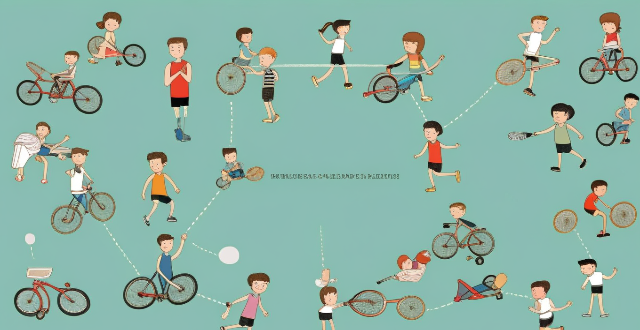
Is it possible for sports to transcend political differences and bring nations together ?
The article discusses the potential of sports to transcend political differences and bring nations together. It highlights three key ways in which sports can achieve this: through competition, cultural exchange, and diplomacy. The power of sports is demonstrated through various examples, such as the Olympics, World Cup, NBA, Formula One, Ping-Pong Diplomacy, and Peace Games. The article concludes that while political conflicts may still exist outside of sports, these activities provide a platform for positive interactions and collaboration that can lead to lasting change.

How can I break into the world of sports journalism ?
Breaking into the world of sports journalism requires a combination of education, experience, networking, and continuous learning. Pursue a degree in journalism or communication and take courses related to sports journalism. Gain experience by interning at sports media organizations and covering sports events for student media outlets. Build your portfolio and online presence by creating a blog or website showcasing your work. Network and gain connections by attending conferences and events, reaching out to established journalists, and joining professional organizations. Apply for jobs and continuously learn by staying up-to-date on industry trends and taking additional courses or certifications. With dedication and hard work, you can achieve your dream of becoming a sports journalist.

How do major sporting events, like the Olympics or World Cup, influence sports-related film productions ?
The Influence of Major Sporting Events on Sports-Related Film Productions Major sporting events like the Olympics or World Cup have a significant impact on sports-related film productions. They generate increased interest in sports, provide inspiration for storytelling, offer access to athletes and coaches, and present marketing opportunities. As a result, filmmakers may be more likely to produce sports-related films during or after these events, creating works that capture the drama and excitement of sports while resonating with audiences worldwide.
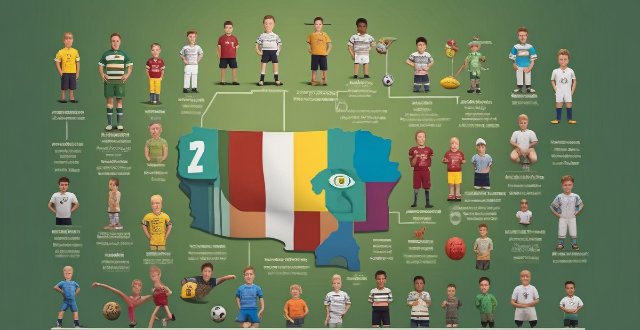
Which country has won the most FIFA World Cup titles ?
The country that has won the most FIFA World Cup titles is Brazil, with a total of five (5) titles. The Brazilian national football team is widely considered one of the most successful in the history of the sport. Other countries that have achieved significant success in the World Cup include Germany, Italy, Argentina, and Uruguay.
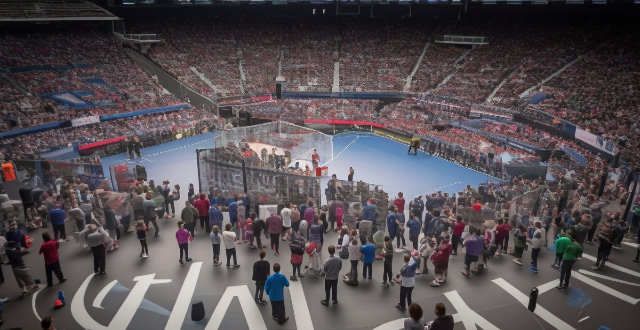
How has globalization affected the popularity of sports around the world ?
Globalization has had a significant impact on the popularity of sports worldwide. It has led to increased international competition, greater exposure for athletes and teams, and a more interconnected sporting culture. With the rise of global communication and transportation networks, athletes and teams from different countries can easily compete against each other, leading to numerous international tournaments and events. Social media platforms have provided greater exposure for athletes and teams, while live streaming services have made it possible for anyone with an internet connection to watch their favorite sports events live from anywhere in the world. Additionally, globalization has fostered a more interconnected sporting culture, leading to the adoption of foreign sports by many countries and the exchange of ideas and practices between sports organizations worldwide.
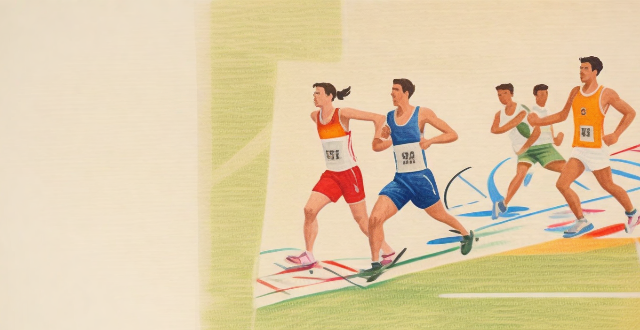
What are some examples of sports events that have promoted international peace ?
This article discusses the role of sports events in promoting international peace and understanding. It highlights the Olympic Games and the FIFA World Cup as two major sporting events that have brought together athletes from around the world to compete in a spirit of friendship, solidarity, and fair play. The article also mentions other events like the Peace and Sport Forum, the United Nations Office on Sport for Development and Peace (UNOSDP), and the Commonwealth Games, which serve as platforms for cultural exchange and diplomacy between participating countries. Overall, the article emphasizes the importance of using sport as a tool for promoting peace and building bridges between nations.

Can you identify any international sports events that have taken significant steps towards achieving gender parity among competitors ?
The text discusses the growing emphasis on achieving gender parity in sports, highlighting significant steps taken by various international sports events towards this goal. It mentions the Olympics' strides in ensuring equal participation and medal distribution for men and women, FIFA's establishment of the Women's World Cup and increased investment in women's football, tennis Grand Slams offering equal prize money and television coverage for both genders, and the Rugby World Cup's efforts to promote women's rugby and implement gender equality policies. The text concludes that these initiatives demonstrate a commitment to creating a more equitable playing field for all athletes, regardless of gender, acknowledging that there is still work to be done.

Can you recommend some breathtaking yet less crowded hiking trails around the world ?
This guide recommends breathtaking yet less crowded hiking trails around the world, from the Sierra Nevada in California to the Himalayas in Nepal. It offers highlights and crowd avoidance tips for each trail.

What is the role of the World Health Organization (WHO) in promoting global health ?
The World Health Organization (WHO) plays a crucialThe World Health Organization (WHO) plays a crucial by providing leadership, setting norm WHO's work is focused on improving health outcomes worldwide through various activities such as convening stakeholders, establishing international standards for health, generating scientific knowledge to inform policy decisions, providing technical support to countries, and monitoring global health trends.

What are the must-visit family-friendly attractions around the world ?
Traveling with family is an amazing experience that creates lasting memories. Here are some of the must-visit family-friendly attractions around the world: 1. Disneyland Paris, France 2. Universal Studios Hollywood, USA 3. Tokyo DisneySea, Japan 4. Legoland Deutschland, Germany 5. LEGOLAND Florida Resort, USA 6. Efteling, Netherlands

How can women overcome gender bias in the startup world ?
Gender bias is a pervasive issue in many industries, including the startup world. Women face unique challenges when it comes to funding, networking, and building their businesses. However, there are strategies that women can employ to overcome these obstacles and thrive in the startup world. Here are some tips: 1\. Build a Strong Network: Networking is crucial for any entrepreneur, but it's especially important for women who may not have as many natural connections in the industry. Attend industry events, join professional organizations, and connect with other entrepreneurs on social media. Make sure to diversify your network by seeking out people from different backgrounds and perspectives. 2\. Develop Your Skills: Take courses or attend workshops to develop your skills in areas such as finance, marketing, and management. This will not only make you a more well-rounded entrepreneur but also demonstrate your commitment to learning and growing. 3\. Be Confident and Assertive: Women are often socialized to be polite and deferential, which can sometimes hold them back in business settings. Practice being confident and assertive in meetings and negotiations. Remember that you deserve to be taken seriously and that your ideas and opinions are valuable. 4\. Seek Out Mentors and Advisors: Find mentors or advisors who can offer guidance and support as you navigate the startup world. Look for people who have experience in your industry and who share your values and goals. 5\. Leverage Your Strengths: Women often bring unique strengths to the table, such as empathy, collaboration, and creativity. Emphasize these qualities in your pitches and marketing materials, and don't be afraid to highlight how they set you apart from your competitors. 6\. Stay Persistent: Starting a business is hard work, and there will inevitably be setbacks along the way. Stay persistent and focused on your goals, even when faced with rejection or failure. Remember that every challenge is an opportunity to learn and grow. 7\. Advocate for Yourself and Others: Speak up about issues of gender bias and inequality whenever you see them. Use your platform to advocate for change within your industry and support other women who are facing similar challenges. By working together, we can create a more equitable and inclusive startup world for all entrepreneurs.

How has sports culture influenced globalization ?
Sports culture has significantly influenced globalization by promoting international cooperation, cultural exchange, economic benefits, media coverage, and tourism. Sports events like the Olympics and World Cup foster goodwill among countries, while also generating revenue through ticket sales and sponsorships. Athletes from different nations come together to share their skills and traditions, leading to mutual respect and appreciation of diverse cultures. Sports tourism is a growing industry that promotes cultural exchange and economic growth in host cities and countries. Overall, sports culture plays a crucial role in promoting global awareness and understanding.

What are the top destinations for extreme sports enthusiasts ?
The text provides a summary of the top destinations for extreme sports enthusiasts, including New Zealand, Switzerland, Norway, United States (Utah), and Chile. It highlights the variety of extreme sports activities available in each destination, such as bungee jumping, skydiving, jet boating, paragliding, mountain biking, base jumping, surfing, kayaking, whale watching, rock climbing, rafting, snowboarding, skiing, and paragliding.

What is the future of e-sports and its integration with technology ?
E-sports, or electronic sports, have seen a meteoric rise in popularity over the past decade. As technology continues to evolve at a rapid pace, the future of e-sports looks brighter than ever before. In this article, we will explore the potential integration of e-sports with technology and what it means for the future of competitive gaming.

How do sports documentaries differ from fictional sports films in terms of audience reception ?
Sports documentaries and fictional sports films differ in audience reception due to their distinct approaches to storytelling, emotional impact, and overall purpose. Sports documentaries focus on real-life stories, providing an authentic portrayal of athletes, teams, and events, while fictional sports films prioritize entertainment value, often incorporating drama, comedy, or romance elements alongside sports action. Documentaries typically follow a linear narrative structure, focusing on a specific timeline or event, while fictional films often feature complex plot twists and character arcs that add depth to the story. Both genres have their merits and can leave lasting impressions on audiences in different ways.

What are some examples of successful initiatives that use sports to promote social inclusion ?
This text discusses successful initiatives that use sports to promote social inclusion. It highlights five examples of such initiatives: Street Football World, Homeless World Cup, Wheelchair Basketball Initiatives, Sporting Equals, and Gender Equality in Sports Programs. These initiatives aim to unite people through football, inspire homeless people, promote disability inclusion, challenge discrimination in British Asian communities, and encourage women's participation in various sports, respectively. The activities include global tournaments for marginalized communities, international tournaments for homeless teams, local wheelchair basketball leagues, community cricket events, and women's sports leagues. The impact of these initiatives is significant, with increased public awareness about homelessness, personal transformation stories of participants, improved physical fitness and self-esteem among disabled individuals, reduced instances of racism and discrimination in sport, and higher visibility and recognition of women in sports.

What is the role of international sports organizations in regulating and standardizing sports in a global context ?
The Role of International Sports Organizations in Regulating and Standardizing Sports Globally International sports organizations are crucial for regulating and standardizing sports globally. They develop rules, enforce anti-doping policies, protect athletes' rights, and promote ethical behavior. These organizations ensure fair competition, create a safe environment for athletes, and maintain the integrity of sports worldwide.

Can sports events promote peace between nations ?
Sports events can promote peace between nations by breaking down barriers, fostering cultural exchange, and providing a platform for diplomatic engagement. Historical and modern-day examples show the potential of sports diplomacy, but challenges such as political interference and commercialization must be considered. Overall, sports have the power to bring people together and promote understanding, making them a valuable tool for promoting peace.
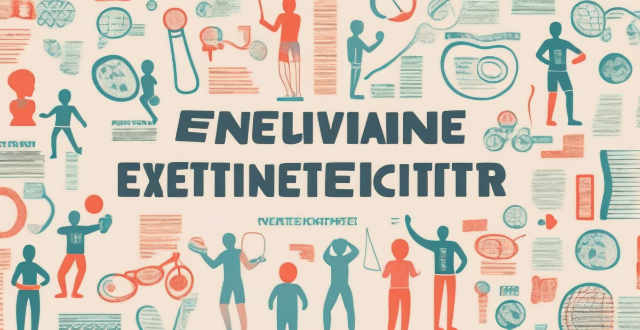
How does sports influence literary creation ?
The influence of sports on literary creation is explored in this article. Sports have provided writers with motivation and inspiration, introduced themes and characters, contributed to realism and atmosphere, and served as a vehicle for social commentary. Examples from various literary works are given to illustrate these points.

How is artificial intelligence being used in sports ?
Artificial intelligence (AI) is revolutionizing the world of sports, from enhancing player performance to improving fan engagement. AI technologies are helping athletes and coaches optimize their training and performance by analyzing data generated by wearable devices during training sessions, predicting injuries before they occur, and providing feedback on areas for skill improvement. AI is also transforming the way teams strategize and analyze games by providing real-time game analysis, predictive analytics, and opponent scouting. Additionally, AI is enhancing the fan experience by providing personalized content, virtual reality and augmented reality experiences, and accessibility options for people with disabilities. Overall, AI is rapidly transforming the sports industry and we can expect even more exciting developments in the future.

What is the impact of sports movies on the sports industry ?
Sports movies have a significant impact on the sports industry by inspiring and motivating people, promoting healthy lifestyles, generating interest in different sports, and providing marketing and branding opportunities. These movies can encourage people to pursue their dreams, work hard, and never give up, as well as highlight the importance of physical fitness and healthy living. Additionally, sports movies can generate interest in less popular or well-known sports and provide excellent marketing and branding opportunities for companies involved in the sports industry. Overall, sports movies play an essential role in shaping public perception and attitudes towards sports and physical activity.

In what ways does sports culture contribute to national identity ?
Sports culture significantly contributes to national identity by representing national values, promoting cultural exchange and diplomacy, preserving historical traditions, evoking national pride and unity, and enhancing economic growth. It serves as a powerful tool for uniting people under a common banner and showcasing the unique character of a nation to the world.

How does the globalization of sports media affect fan engagement and consumption patterns ?
The globalization of sports media has significantly impacted fan engagement and consumption patterns. Enhanced accessibility through live streaming, on-demand content, and digital platforms has revolutionized how fans watch and interact with sports. Diverse content offerings, including international coverage and multilingual broadcasts, have expanded the reach of sports to global audiences. Personalized experiences through customized content and fantasy sports have increased fan engagement. Additionally, virtual events, e-sports, and online tournaments provide new opportunities for fans to participate and engage. Changes in consumption patterns, such as a shift towards digital subscription models and online merchandise shopping, reflect the evolving landscape of sports media. Overall, the globalization of sports media has transformed the way fans consume and enjoy sports worldwide.
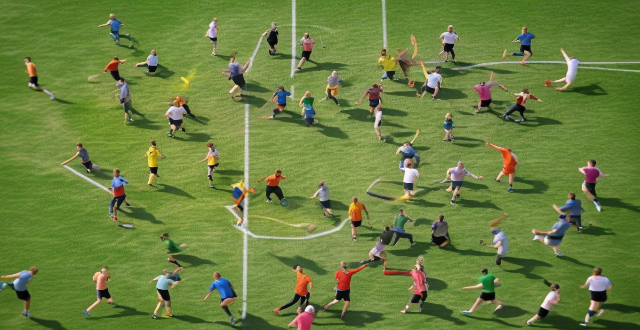
What are the economic implications of the globalization of professional sports leagues ?
Globalization has significantly impacted the world of professional sports, leading to increased competition, market expansion, and financial opportunities. This phenomenon has brought about various economic implications that affect players, teams, leagues, and fans alike. One of the primary effects is the increased competition among teams and players, driving up player salaries and transfer fees. Globalization has also led to the expansion of sports markets beyond traditional borders, allowing for greater revenue generation through increased ticket sales, merchandise sales, broadcasting rights, and sponsorship deals. However, it also presents challenges and risks such as corruption, match-fixing scandals, financial instability, and the dilution of local sports traditions. Overall, addressing these challenges is crucial for the continued success and sustainability of professional sports leagues worldwide.

How does sports diplomacy contribute to international relations ?
Sports diplomacy is a form of soft power that uses sports events and activities to foster relationships between nations. It contributes to international relations by enhancing mutual understanding, promoting economic cooperation, and promoting peace and security. Sports diplomacy promotes cultural exchange and builds trust between nations. It also attracts investment, creates job opportunities, reduces tensions, and enhances security cooperation. Overall, sports diplomacy plays a crucial role in building stronger relationships between nations.

How does the globalization of sports affect national identities and patriotism ?
The globalization of sports has had a significant impact on national identities and patriotism, with both positive and negative effects. On the positive side, it has increased exposure to different cultures, provided opportunities for international collaboration, and brought economic benefits to host countries. However, it has also led to concerns about diluted national identity, commercialization and corruption in sports, and unequal access to resources between developed and developing nations. Balancing these aspects will be crucial in ensuring that sports continue to unite rather than divide us on a global scale.